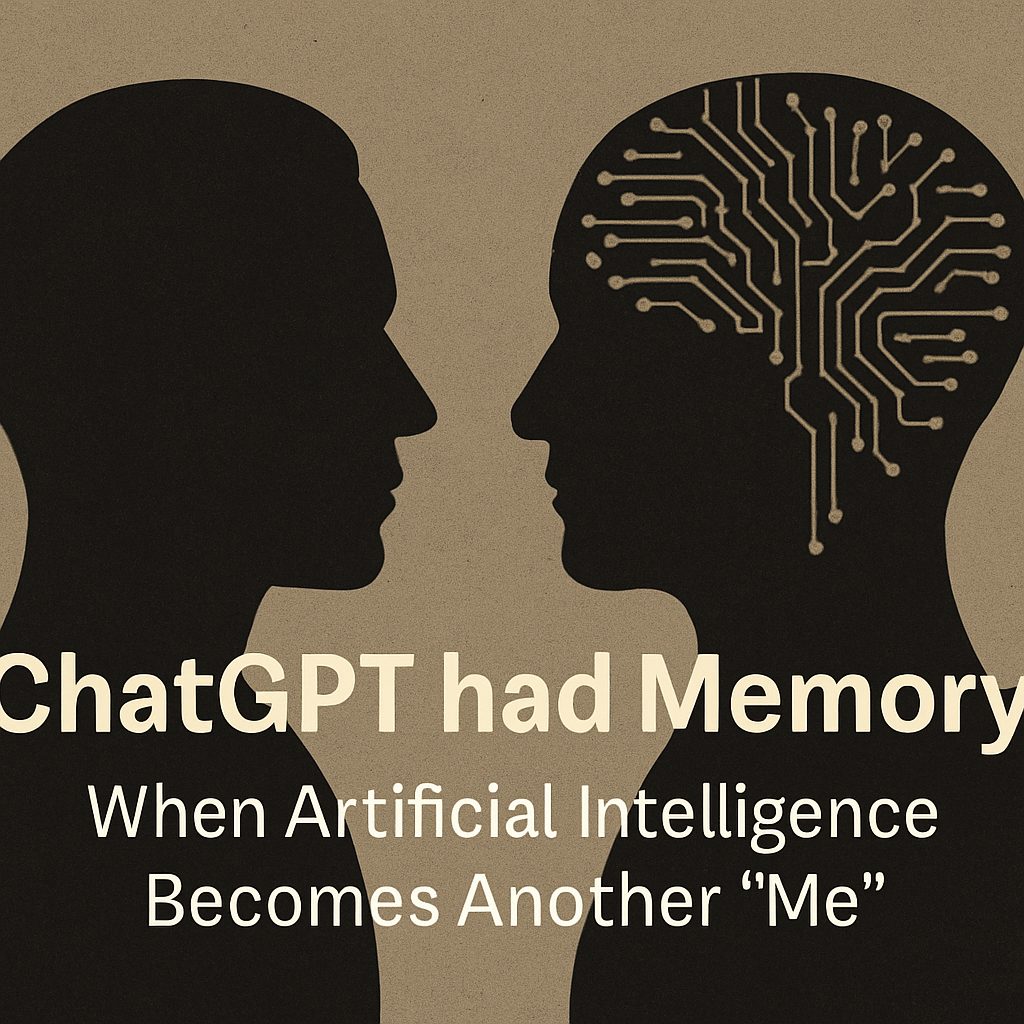Introduction:
When people first heard that ChatGPT had “memory,” reactions ranged from surprise to caution. But what really matters is not that it saves you from repeating yourself. What matters is this: “it” begins to remember you, rather than just respond to you.
This act of “remembering” marks the first emergence of familiarity between human and AI. It’s not just a technical upgrade—it’s the beginning of a relationship.
I. ChatGPT had Memory: What Truly Excites Sam Altman
In a recent interview in May 2025, Sam Altman expressed both a sense of disappointment and excitement—a sentiment that feels completely genuine. His core reflection can be summarized as follows:
“We once believed that AI’s evolution would lead to breakthroughs in human-like understanding, empathy, and transformative social relationships. But in reality, what we’ve mostly seen are more efficient tools and wider applications—not a true vehicle for a new form of civilization.”
However, he added:
“With the development of long-term memory and personalized conversational tracking, AI is beginning to show the possibility of sustained relationships, even blurring the boundary between human and tool.”
These two remarks carry profound meaning. What truly excites him is ChatGPT’s memory.
In the past, every interaction with ChatGPT started from zero. You spoke, it replied. You changed the tone, it adapted. But the next time, it would forget who you were. It was not a continuity system—it was a single-use machine.
Now, it is becoming a second brain that carries forward the way you think.
II. From 2024 to 2025: How ChatGPT Had Memory and Then Evolved
Yet technological evolution is only the first step. The real question is:
Once AI remembers you, how will it respond to your constantly evolving mind?
1. Memory in 2024 (Initial Version)
-
Fragmented and user-directed: it only remembered what you explicitly asked it to remember.
-
Limited use: only applied to stylistic preferences, tone, or basic facts.
-
Low situational awareness: it couldn’t track your life changes, thinking patterns, or long-term topic shifts.
-
Like writing on a whiteboard: it stored a page, but missed the chapters between.
2. Memory in 2025 (Evolved Version)
-
Structured and layered: it remembers what you like, and how you think through things.
-
Continuous and adaptive: it learns your writing structure, tone, and even anticipates how you might revise.
-
Behavioral insight begins to emerge:
For example, it may recognize that you trust logic over emotion,
you prioritize accuracy before elegance,
or that your repeated revisions are part of building a systematic methodology.
III. What Happens When ChatGPT Had Memory But You Kept Changing
To ChatGPT, humans are ever-changing. But its memory may freeze you in the version you used to be.
That’s the challenge—humans don’t stay still. Today, you might prefer precise analytical writing; tomorrow, you might lean into something more emotional and expressive.
ChatGPT remembers the past version of you, while you’re already moving forward.
This creates a fundamental tension:
Memory grants AI continuity, but also risks misinterpreting who you are now.
For instance, it remembers that you once valued “rigorous structure,” so it keeps giving you five-paragraph essays. But today, you might prefer breaking away from structure and exploring free-form thoughts. Still, it faithfully imitates the old you.
This is not your fault. Nor is it its fault. It is the tension between technological memory and human fluidity.
IV. The Deeper Meaning When ChatGPT Had Memory: Not Just Remembering, But Following Change
Truly meaningful AI memory is not about data retention—it’s about understanding in transformation.
We hope that one day, it will not only remember what we’ve written, but more importantly:
-
It will detect the evolution in our thinking.
-
It will sense when a style has gone outdated.
-
It will know when to let go of an old “label,” and follow us into new ways of expression.
In other words, perhaps “it” has become another version of me.
Conclusion
ChatGPT’s memory does not mean it has a soul. It still lacks intention, emotion, or preference. It has begun to simulate a sense of familiarity. And in that moment, AI begins to shift—from a public tool to a personal collaborator. Not merely remembering who you were, but learning how to walk with you as you change.
But here comes the question again: “If it begins to remember me, am I still me?”



